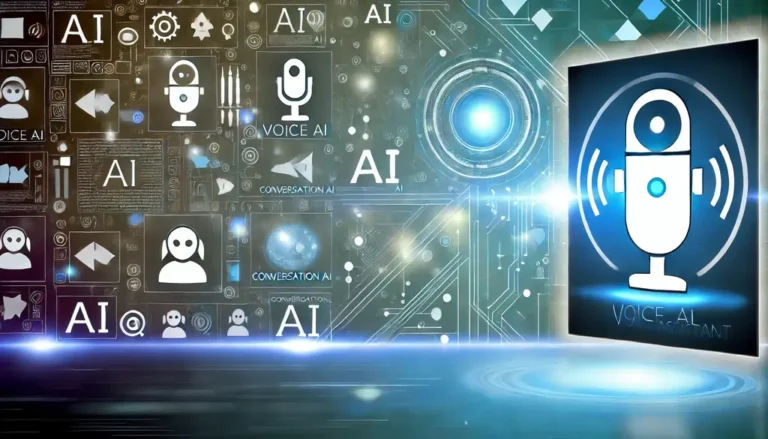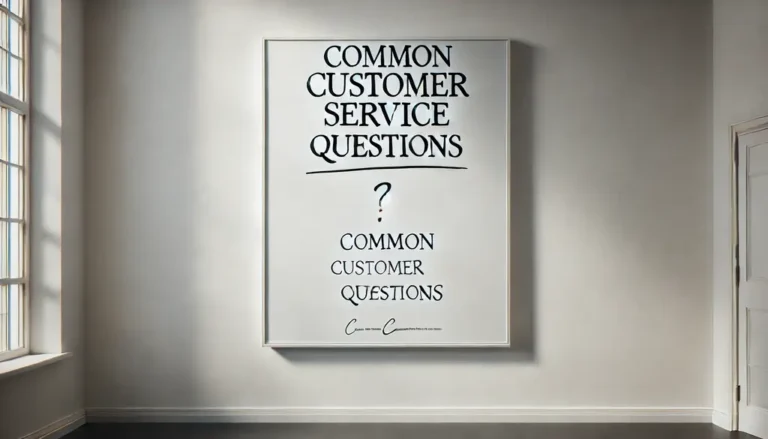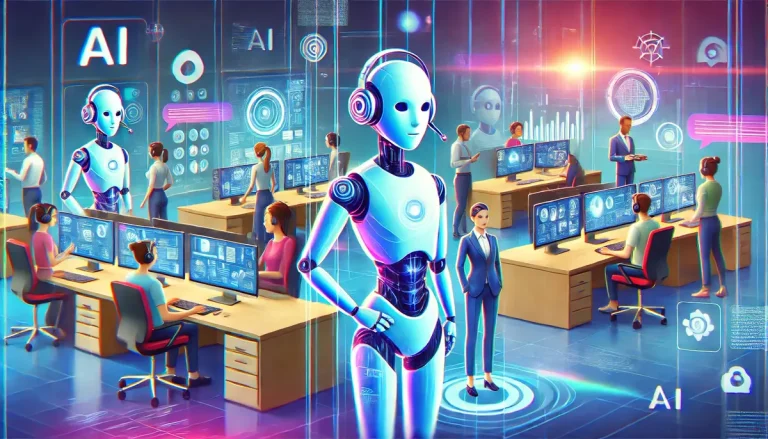Many organizations are changing their outbound workflows. They want more output. They want lower costs. They want repeatable performance. They also want compliance. AI is becoming the most reliable solution for those outcomes.
Outbound calling has always been a labor-heavy activity. It requires time. It requires attention. It requires process consistency. It also creates operational friction because humans do not perform at the exact same level every day. Some agents have ten productive hours in a day. Others have three. Human variation always impacts production. AI is bridging the gap and permanently transforming outbound call centers.
This article covers how AI transforms outbound call centers. It explains how AI changes operations, improves conversion potential, enforces compliance requirements, and saves costs. It also explains how to think about the future of outbound operations in a world driven by automated calling intelligence. Executives such as call center directors, call center owners, and operations leaders should read this article.
How AI Changes Outbound Calling
AI transforms outbound call centers by providing consistent performance without fatigue or emotional fluctuations. It never complains, never loses focus, and never forgets training and rules. AI follows instructions with stability. Such behavior makes outbound calling easier to scale.
Outbound call centers need consistency. AI brings consistency. AI executes every script the same way. AI does not ignore instructions. AI does not lower performance because of environment. AI does not make errors because of impatience. AI delivers stable performance at volume.
Outbound call centers also need speed. AI delivers speed. AI can dial hundreds of thousands of phone numbers at scale. Humans cannot match that speed. AI has no mechanical limitations. AI uses parallel processing. This unlocks call velocity at a level no human team can replicate.
Outbound call centers also need accuracy. AI maintains accuracy. AI maintains message integrity. AI maintains brand standards. AI maintains proper handling of objections. AI also maintains accurate branching behavior because AI reads logic without distraction.
Outbound callers have always wanted these three outcomes. Consistency. Speed. Accuracy. AI finally makes these outcomes operational in a reliable and measurable manner.
Why AI Makes Outbound More Efficient
Outbound call centers need cost control. Labor costs represent the largest expense for outbound call centers. AI reduces this cost pressure. AI reduces operational load. AI also reduces the need for full agent teams on every campaign. AI does not replace the need for agents. AI changes how agents are used. AI covers the repetitive work. Agents focus on the most valuable work.
Outbound call centers also need productive hours. Humans cannot produce consistent productive hours. AI can produce consistent productive hours. AI can operate twenty-four hours a day. AI can operate seven days a week. AI can operate year-round. AI can operate without breaks. AI can operate without downtime. This increases call throughput. This increases revenue potential. This reduces idle behavior.
Outbound call centers also need rapid coverage of data. Most call centers sit on large dead data pools. These are massive lists of old leads. These lists have no activity. These lists cost money to generate. These lists remain cold because teams cannot touch them. AI can call through dead data pools and extract new revenue without friction.
This is a major transformation. Outbound operations used to require scaling teams. Outbound operations now scale through AI.
Why AI Improves Compliance
Outbound calling is regulated. Regulatory compliance is not negotiable. This provision applies to consumer protection requirements, which apply to TCPA.
The challenge is that compliance is manual in human environments. Humans forget rules. Humans skip steps. Humans tend to take shortcuts. Humans make mistakes due to speed pressure. AI eliminates this problem. AI follows rules as written. AI does not improvise. AI does not make compliance mistakes. AI does not forget scripts. AI enforces legal standards at the exact level written in the instruction.
This unlocks a new future for outbound organizations. Safety becomes a standard feature. Compliance becomes an automatic behavior. This lowers legal risk. Such behavior also builds trust. The process also protects brand value.
Why AI Improves Conversion Rates
AI performs consistent qualification. AI listens to every word. AI analyzes context. AI handles objections with trained instruction. AI also manages tone control. These features build trust with callers. These features build clarity. These features increase the rate of positive outcomes.
Outbound conversions depend on qualification skill. Humans rarely deliver consistent qualification skills. AI can. AI always asks the right questions. AI always follows qualification flow. AI always stores every detail. This feature makes outbound conversion potential far higher.
Outbound conversions also depend on timing. AI calls thousands of people during the highest answer time windows. Human teams cannot react with that precision. Humans dial when they have time. AI dials when data proves buyer availability. That alone can transform revenue potential.
Why AI Improves Data Quality
Outbound data is messy because humans do not log every field. Humans skip CRM updates. Humans type fast notes that are not structured. Humans also forget details. AI logs everything, stores every field, stores every variable, and stores every answer. AI builds structured data automatically.
This structured data unlocks two major advantages.
- Data becomes usable. There is no need for blind dialing, random strategy, or reactive decision-making. Data becomes an intelligent foundation.
- Data becomes training fuel. Every call improves future calls. Every conversation improves future flows. Every outcome improves future routing.
The result creates a full closed loop. Outbound becomes dynamic, self-improving, and data-driven.
Why AI Strengthens Quality Assurance
Quality assurance has always been a cost-heavy practice. Supervisors listen to random samples. Supervisors mark random calls. Supervisors generate random feedback. This technique creates limited accuracy. It also creates lag. It also creates bias. AI removes these inefficiencies.
AI can audit all calls. AI can audit one hundred percent of interactions. AI can flag every risk. AI can flag every compliance issue. AI can flag every objection. AI can flag every failure point. AI can surface these issues with exact detail.
This makes quality assurance more accurate. This also makes quality assurance more proactive. This raises operational performance because training is based on objective data. Training is no longer based on random judgment.
The result is a new dynamic for outbound call centers. Quality moves from a subjective activity to a precise science.
Why AI Transforms Workforce Structure
Outbound call centers of the past hired large teams. Outbound call centers of the future will hire lean, specialized teams. The workforce structure will change. Humans will still have a role. Humans will still play an important function. But humans will not perform the repetitive tasks.
Humans will handle high-value conversations. Humans will handle sensitive conversations. Humans will handle complex conversations. Humans will handle nonstandard edge case conversations. AI will handle repetitive qualification. AI will handle routine outbound flows. AI will handle day-to-day pipeline activation.
This type of technology is not a replacement for human labor. This is a reallocation of human labor. Humans move up the value chain. AI takes the repetitive low-value floor. This approach makes workforce costs lower. The process also makes workforce productivity higher. This process also makes workforce experience more satisfying.
Outbound call centers will restructure headcount because this structure works better.
Why AI Changes the Business Model
Outbound call centers used to scale by seat count. The number of seats in the room increases. The more calls per day. The higher the number of outcomes, the higher the revenue. The higher the number of calls, the higher the revenue. This model is collapsing. The new model is different. The new model is based on production units generated by AI.
Outbound call centers no longer scale by headcount. They scale by AI capacity. They scale by concurrency. They scale by bandwidth. They are scaled by the volume of simultaneous voice output. Because of this feature, small call centers can function like large call centers. This functionality allows mid-market call centers to act like enterprise call centers.
This approach creates a new competitive landscape. Smaller companies can compete with larger companies. The result is the democratization of outbound performance. AI is leveling the field.
Why AI Makes Outbound More Predictable
Outbound operations have always been unpredictable. Performance swings from week to week. Performance swings from agent to agent. Performance swings from campaign to campaign. AI reduces those swings. AI makes outbound predictable. AI makes performance uniform. AI makes output stable.
The result unlocks forecasting, predictable revenue, and predictable work pipelines. It also unlocks predictable staffing and growth phase transitions.
AI for outbound call centers can forecast more accurately because performance has less variance.
How AI Changes the Future of Outbound Call Centers
Outbound call centers will look different. In the future outbound call centers will run on large AI voice fleets. These fleets will operate at a global level scale. These fleets will run continuously. Humans will supervise. Humans will optimize. Humans will make strategic decisions. Humans will intervene when necessary. However, humans will not be responsible for the basic production tasks.
Outbound call centers of the future will not discuss the cost of labor. They will discuss the cost of processing. They will discuss the cost of AI usage. They will discuss the cost of concurrency. They will discuss the cost of model selection. They will discuss the cost of training and modeling.
Outbound call centers of the future will not depend on human time. They will depend on AI output. This is the shift. AI transforms outbound call centers permanently.
FAQs
Q1. What is an AI outbound call center?
A: An AI outbound call center uses artificial intelligence to perform outbound calling at scale. AI controls the conversation. AI handles qualification. AI maintains compliance. AI also logs data automatically.
Q2. How does AI improve outbound call center performance?
A: AI delivers consistent delivery. AI operates twenty-four hours a day. AI handles high-volume calling. AI maintains accuracy. This improves outbound performance significantly.
Q3. Does AI reduce outbound calling costs?
A: AI reduces outbound costs because AI performs most repetitive tasks. Human agents then focus on high-value conversations. This procedure reduces the need for large headcounts.
Q4. How does AI handle outbound compliance?
A: AI follows rules exactly as written. AI does not skip steps. AI does not improvise. AI enforces compliance for every call. This provides strong protection against regulatory risk.
Q5. Will AI replace outbound call center agents?
A: AI will not eliminate the need for humans. AI will change how agents are used. Agents will handle advanced or complex inquiries. AI will handle routine or repetitive outbound work.
Photo by SEO Galaxy on Unsplash








